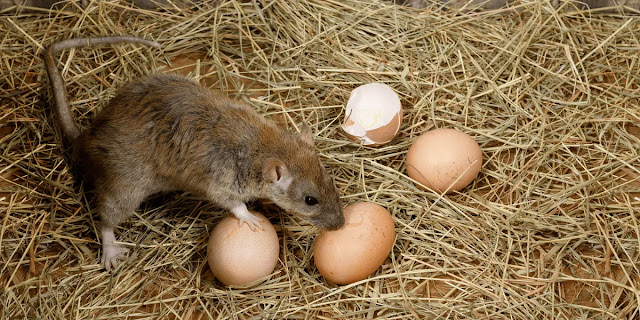WRITER: RANA TALHA
Raising backyard chickens can be a rewarding experience, providing fresh eggs and a connection to nature. However, one concern that often arises among poultry keepers is the potential threat of rats preying on chicken eggs. '
In this comprehensive guide, we will explore the question, "Do rats eat chicken eggs?" and provide practical insights on how to protect your feathered friends from these cunning rodents.
The Rat Menace
Rats, known for their opportunistic and omnivorous nature, can pose a significant threat to chicken coops. These rodents are notorious for scavenging and can consume a wide range of food items, including chicken eggs. Understanding the habits and behaviors of rats is crucial in implementing effective preventive measures.
Why Do Rats Target Chicken Eggs?
Rats are attracted to chicken coops for various reasons, with the prospect of easy access to a nutritious and protein-rich food source being one of them. Chicken eggs provide an easily consumable and high-energy meal for rats, making them a prime target for these cunning rodents. Recognizing the factors that attract rats to chicken eggs is the first step in developing a strategy to protect your flock.
The Risks of Rat Infestations
Beyond the immediate threat to chicken eggs, rat infestations can have severe consequences for your entire flock and even your property. Rats are carriers of diseases, parasites, and can cause structural damage to coops. Exploring the potential risks associated with rat infestations emphasizes the importance of taking proactive measures.
Protecting Your Chicken Eggs
Implementing effective strategies to protect your chicken eggs from rats is essential for the well-being of your flock. This section will cover a range of practical tips and methods, including:
a. Secure Nesting Areas: Designing secure nesting areas that are difficult for rats to access.
b. Elevated Nesting Boxes: Elevating nesting boxes to create a barrier against rodent intrusion.
c. Regular Cleaning: Maintaining a clean coop to remove any spilled feed or egg residue that may attract rats.
d. Motion-Activated Lights: Installing motion-activated lights to deter rats during the night.
e. Trapping and Baiting: Using rat traps and bait stations strategically around the coop perimeter.
Natural Predators of Rats
Introducing natural predators of rats, such as barn owls or cats, can be an eco-friendly and effective solution. This section explores how these predators can help control rat populations around your chicken coop.
Conclusion
In conclusion, while rats may pose a threat to chicken eggs and the overall well-being of your flock, proactive measures can significantly reduce the risk of infestation.
By understanding the habits of rats, implementing protective strategies, and introducing natural predators, you can create a secure environment for your backyard chickens. With the right precautions, you can enjoy the benefits of raising chickens without the worry of rats preying on your valuable eggs
Related Post: Rats Digging Under Chicken Coop Reason & Solution
Related Post: Signs of Rats in Chicken Coop
Related Post: Homemade Rat Poison Safe for Chickens





.jpg)
.jpg)

0 Comments